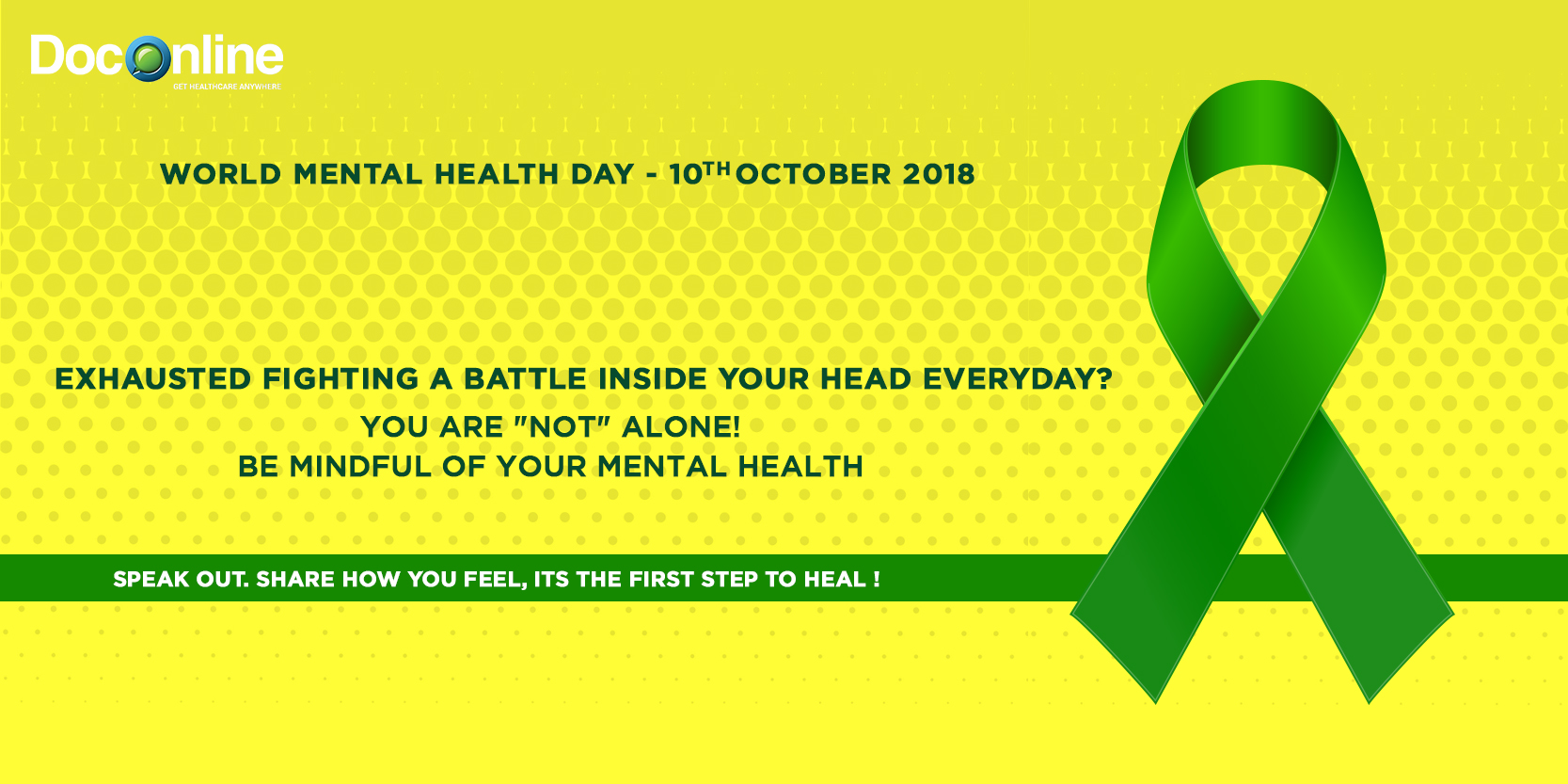The 27th World Mental Health Day takes place on October 10,2018. WMHDAY emphasizes the continued need for improving the lives of people living with various aspects of mental health. It aims to promote mental health and educate the public on relevant issues. We would like to stress that WMHDAY is not simply a one day event. Here we come to this years theme: YOUNG PEOPLE AND MENTAL HEALTH IN A CHANGING WORLD.
Adolescent mental health
WHO Key facts :
- Mental health conditions account for 16% of the global burden of diseases and injuries in people aged 10–19 years.
- Half of all mental health conditions start by 14 years of age but most cases are undetected and untreated.
- Depression is one of the leading causes of illness and disabilities among adolescents.
- Suicide is the third leading cause of death in 15–19 year olds.
- The consequences of not addressing adolescent mental health conditions slip into adulthood, thus impairing both physical and mental health and limiting opportunities to lead fulfilling lives as adults.
Adolescence is a very deciding period for developing and maintaining social and emotional habits that are important for mental well-being. These include adopting healthy sleep patterns; taking regular exercise; developing coping, problem-solving, and interpersonal skills; and learning to manage emotions. Not being able to maintain proper mental health or a proper balance can lead to the following.
Emotional disorders
Emotional disorders commonly appear during adolescence. Altered emotional states are common in psychiatric disorder. It is normal and appropriate for most people to experience a range of emotions in relation to life events, including happiness, sadness, irritability, fear, anger and anxiety. The question of abnormality of mood arises when the mood state seems either extreme or prolonged. Younger adolescents may additionally develop emotion-related physical symptoms such as stomach ache, headache, or nausea.
Emotional disorders can be profoundly disabling to an adolescent’s functioning, affecting schoolwork and attendance. Withdrawal or avoidance of family, peers or the community can exacerbate isolation and loneliness. At its worse, depression can lead to suicide.
1. Childhood behavioural disorders
Adolescence can be a time where rules, limits and boundaries are tested. However, childhood behavioural disorders represent repeated, severe and non-age-appropriate behaviours such as hyper-activity and inattention (such as attention deficit hyperactivity disorder) or destructive or challenging behaviours (for example, conduct disorder). Childhood behavioural disorders can affect adolescents’ education, and sometimes lead to potential referrals. These can be substance use/abuse, sexuality, socialization and management of relationships, behaviour problems, emotional concerns, school problems and over anxious concern for the future.
Eating disorders
Eating disorders commonly emerge during adolescence and young adulthood. It's multifactorial including psychological, genetic and social factors. Most eating disorders affect females more commonly than males. Eating disorders include anorexia nervosa, bulimia nervosa and binge eating disorder. These are characterised by harmful eating behaviours such as restricting calories or binge eating, over exercising, self induced vomiting, purgative abuse and more. People with binge eating disorder can experience feelings of distress, guilt or self-disgust when indulging in binge eating.
2. Psychosis
Disorders which include symptoms of psychosis most commonly appear in late adolescence or early adulthood. Manifestations of psychosis can include hallucinations (such as hearing or seeing things which are not there) or delusions (including fixed, non-accurate beliefs). Experiences of psychosis can severely impair an adolescent’s ability to participate in daily life and education.In many contexts, adolescents with psychosis are highly stigmatized.
3. Suicide and self-harm
Suicide attempts can be impulsive or associated with a feeling of hopelessness or loneliness. Risk factors for suicide are multifaceted, including harmful use of alcohol, abuse in childhood, stigma against help-seeking.
Promotion and prevention
The tough aspect about dealing with mental health is that in todays multifaceted stress borne world, one never knows when one can slip in terms of their mental health. Stress and fatigue built up over a period can cause one to burn out and break down. Besides, there are more serious forms of mental health issues like severe depression, bipolar disorder, schizophrenia and others that need medication, counselling and monitored sessions with doctors.
Social intervention in the following ways can help the affected people lead better lives. These can include:
- - Adressing social isolation and social skill deficits.
- - Special education services for child/Adolescent .
- - Behavioural and cognitive therapy.
- - Positive reinforcement for desired behaviours and punishment for objectional behaviours.
- - Relaxation exercises with Self-Instruction.
Examples of promotion and prevention activities include:
- One-to-one, group-delivered, or self-guided online psychological interventions
- Family-focused interventions
- School-based interventions such as:
- Organizational changes for a safe, secure and positive psychological environment
- Teaching on mental health and life-skills;
- Training staff in detection and basic management of suicide risk
- School-based prevention programmes for adolescents vulnerable to mental health conditions;
- Community-based interventions such as peer leadership or mentoring programmes
- Prevention programmes targeted at vulnerable adolescents such as those affected by humanitarian and fragile settings and minority or discriminated groups
- Programmes to prevent and manage the effects of sexual violence on adolescents
- Multisectoral suicide prevention programmes
- Multilevel interventions to prevent alcohol and substance abuse
- Comprehensive sex education to help prevent risky sexual behaviours
- Violence prevention programmes.
The body is the vehicle and the mind, the driver. Mental health care is as important as taking care of one’s physical well-being and they are interdependent. Hence, its important to mind the mind and maintain a healthy mental state!
Looking for Doctor's Advice?













